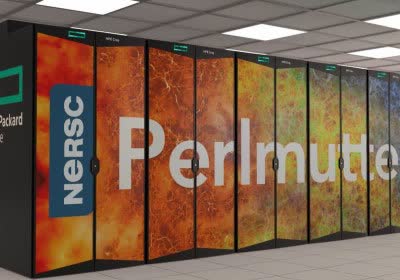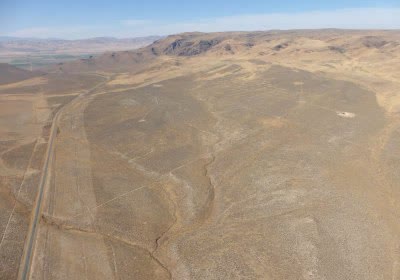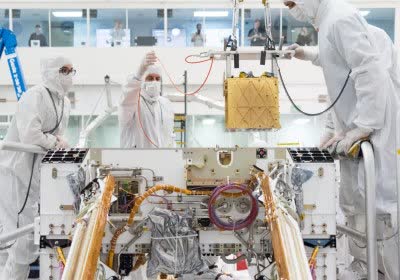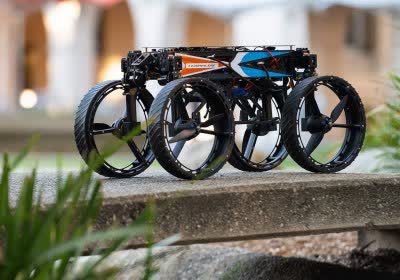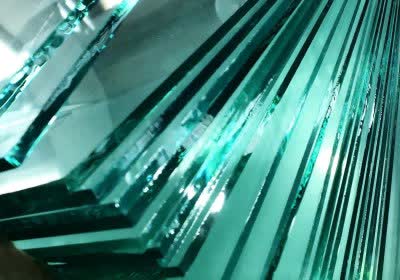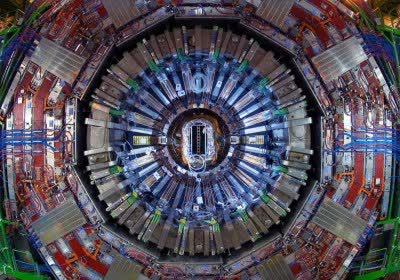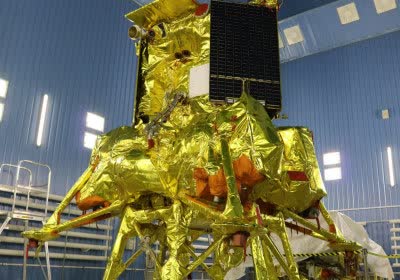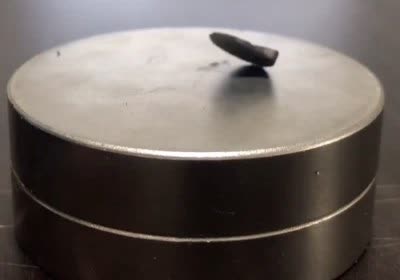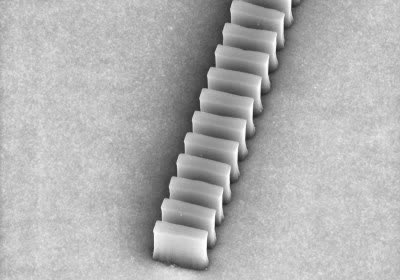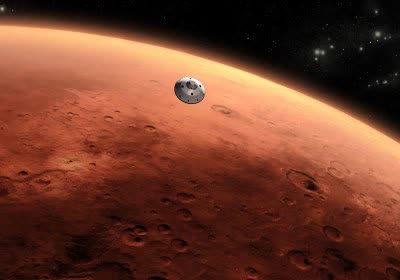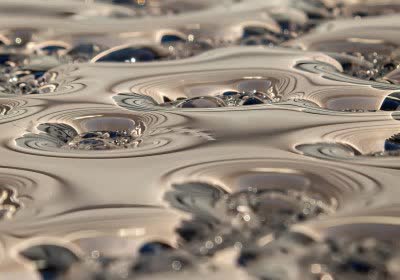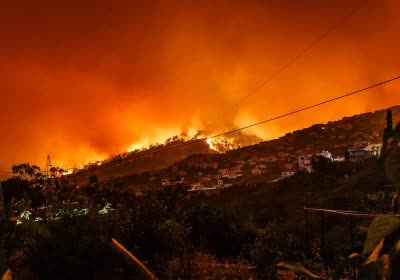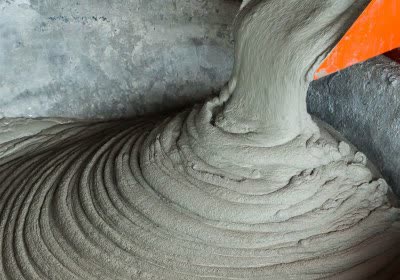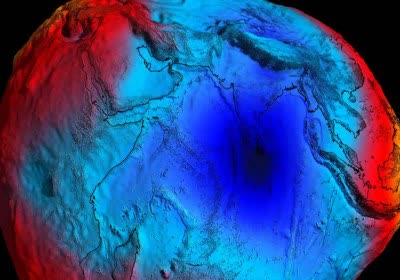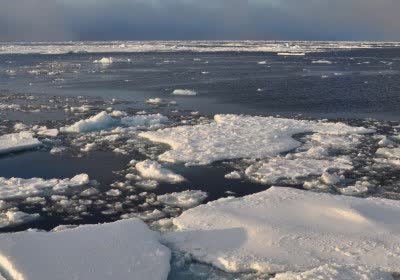Potentially the world's largest lithium deposit has been found in a US volcano
A possible game changer for the US electric vehicle industry
NASA generates enough oxygen on Mars for a small dog to breathe for ten hours
A pawsitive step for future exploration
CalTech's autonomous drone that can fly, roll, and walk might be the next Mars rover
NASA is testing the RC-sized bot while the research team designs a more powerful full-sized version
Is aluminosilicate glass the "strongest glass ever?"
The substance is as strong as aluminium oxynitride but is magnitudes weaker than fullerene glass
Large Hadron Collider experiments detect the first "man-made" neutrinos
The least-studied particles in the Standard Model have finally been caught
RoboMapper can drastically speed up solar cell research
Simplifying repetitive, labor-intensive work while seeking the ideal perovskite material
Methane-eating bacterium strain could help mitigate global warming
Reducing or absorbing greenhouse gas emissions isn't enough, at this point
Scientists recreate Pink Floyd's "Another Brick in the Wall" using patient brainwaves and AI
The technology could open the door to more effective brain-machine interfaces
Russian space agency confirms its LUNA-25 mission crashed on the lunar surface
The mission was launched to study the moon's polar region and exosphere
Worldwide scientific collaboration finds LK-99 is not a room-temperature superconductor
Pure samples of LK-99 proved to be perfect insulators
New silicon-based "metasurfaces" can rapidly detect toxins, viruses, cancer, and other diseases
A biochip with wondrous diagnostic capabilities, seemingly ready for commercialization
NASA will test laser communication to speed up data transmission in space
Forward-looking: The US space agency will soon send a new, experimental laser communication technology into space that is expected to show potential data transmission rates that are 10 to 100 times the speed of current state-of-the-art radio systems. The device is installed aboard the Psyche spacecraft, which is scheduled to launch no earlier than October 5, 2023.
MIT spin-off inches closer to commercializing liquid metal battery technology
A trial run is set for 2024
July 2023 was the Earth's hottest month on record as more regions feel the effects of global warming
The world is getting hotter by the day, with no immediate respite in sight
Scientists repeat nuclear fusion net gain in significant step toward clean energy
Lawrence Livermore National Laboratory researchers achieve greater yield than the December experiment
NASA now believes our galaxy is home to trillions - not billions - of rogue planets
Castaways that aren't gravitationally tied to a star system
Carbon black and cement could be used to store energy in homes and roads
Novel, battery-like material to be integrated in roads and homes' structural elements
New experimental pill shows promising results in killing many types of cancer
Treating a previously "undruggable" protein mutation to shut down cancerous cell proliferation
Brain implants powered by AI help paralyzed man feel and move again
The technology could be used to help other paralyzed patients
Riddle me this: What is the deep-space question mark astronomers found in this Webb NIRCam photo?
In context: Since its launch a little over a year and a half ago, the James Webb Space Telescope has given astronomers, scientists, and the public unprecedented views of the distant universe. As NASA's largest and most powerful telescope, JWTS can scan further than we have ever seen, sparking brand-new discoveries. But what is Batman's Riddler doing out there?
Researchers traced a 2.3 magnitude Seattle earthquake's epicenter to a Taylor Swift concert
The singer's fans out shook Seattle Seahawks 2011 "Beast Quake"
Witnesses testify under oath during congressional hearing on UFOs
No gun, but lots of smoke
Earth's "gravity hole" off the Indian coasts has finally been explained. Maybe
The Indian Ocean Geoid Low was likely shaped by magma plumes, but something's still amiss
Antarctic sea ice levels are declining faster than ever
A "five-sigma" event which could spell doom for the future of our planet

